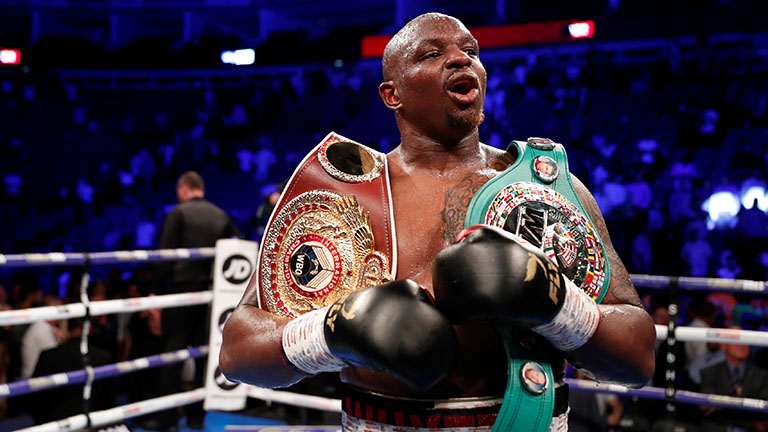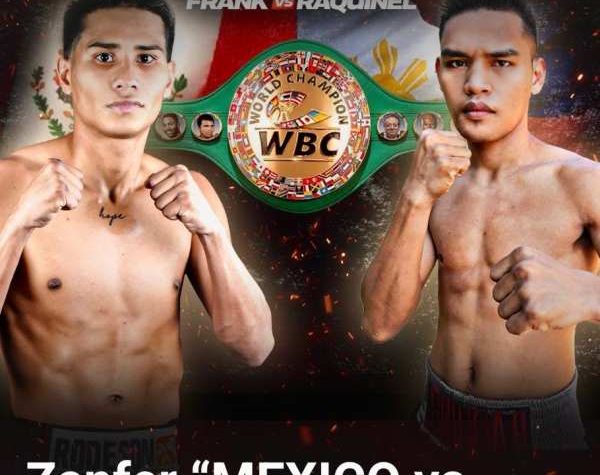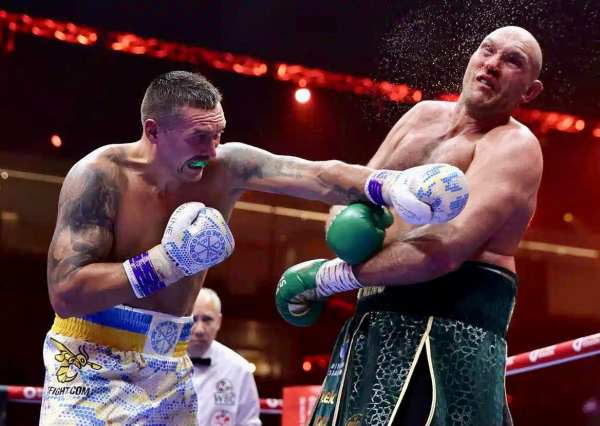
By Boxingnewsonline.net
Joseph Parker was one punch away from the promised land but Dillian Whyte has a wealth of options ahead of him, writes Tris Dixon
Action Images/Peter Cziborra
BIG-FIGHT finales do not get much more extraordinary than the final few seconds of the 12th round between Dillian Whyte and Joseph Parker.
Whyte, having built a marginal lead, was left clinging on for dear life having swallowed a right hand whole in the dying embers of the fight.
Parker had mustered it from somewhere. The two had been boxing on empty for several minutes at the end of a hard, physical and bruising encounter and Whyte managed to stay upright to hear the final bell but he might not have lasted another few seconds.
Now he could end up facing Anthony Joshua in a rematch next April, in Wembley Stadium, though promoter Eddie Hearn will try to land him the Deontay Wilder fight again. Then, of course, Hearn has American Jarrell Miller under contract and he hopes to keep Whyte hungry, active and ambitious ahead of a big contest next April.
Parker has lost two on the spin and, from the side-lines, some questioned the desire he will have to get back in the ring having earned well from consecutive pay-per-view fights against Joshua and now Whyte. He may have been buoyed by the ending, however, and at 26 is still young and now has a burgeoning amount of experience.
Can he come again? Yes. What makes the most sense is for him and promoter David Higgins to join forces with Eddie Hearn and fight in the US on the DAZN platform. But not against Miller or anyone or the leading contenders. Two simple wins, maybe over eight and 10 rounds, and then see what options are out there. He could beat Whyte in a rematch but following back-to-back losses he brings almost nothing to the table.
He has earned a break after a tough night in the office, too.
Whyte used a series of rough tactics that seemed to drain the New Zealander’s battery. The Brixton man picked up numerous warnings for a variety of infractions but never lost a point through referee Ian John-Lewis.
I counted at least seven different types of foul, some he was warned for and some he was not.
In the 12 rounds, he pulled Parker’s head down, punched him in the back of the head, pushed him over the top rope and charged towards him, attempted to slide Parker’s head and neck along the top rope, leant over and on him in clinches, hit low, pushed his face away in clinches and shoved him into the ropes with his shoulder. It was a bruising affair. Parker’s team were often incensed by the rough stuff but the fighter shrugged his shoulders, got on with it and did not complain when he and Whyte sportingly embraced at the end.
It had started well for the visitor. His jab was crisp. He worked the body. The speed of his right hand was giving the Londoner problems.
Parker was down in round two, from either a left hook, a headbutt or a combination of the two depending on whose version you heard. He was given a count.
The pattern was similar throughout. Whyte used his size, strength and power, Parker tried to employ his speed and footwork. Both had their successes.
The pace was telling, though. Through the middle rounds one waited for them to get their second winds but the tanks were simply running dry.
By round eighth, Whyte’s physicality was becoming the determining factor. He was the boss in the ring and in the meaningful exchanges though it was always tight and in round nine he landed an emphatic left hook, chopping Parker to the floor.
The visitor had failed to cover up having thrown an uppercut.
It became messier as the fatigue levels increased and then, just when it appeared Parker could not change the direction of the fight, he landed a booming right and down went Whyte. Parker swung away, trying to finish it. The referee could have stopped it. He was within his rights to do so but Ian John-Lewis let it go and the final bell sounded. We were denied a Meldrick Taylor-Julio Cesar Chavez ending. Parker was denied, too. Whyte would not be.
Joseph nodded. He knew. One punch. One minute. One second from the Promised Land. He lost on the cards 113-112, 115-110 and 114-111.






More News
Liu Gang, Brico Santig Join Forces
Highland’s Double Impact: August 18 at Lumpinee
Balajadia, Atencio in Action in Thailand